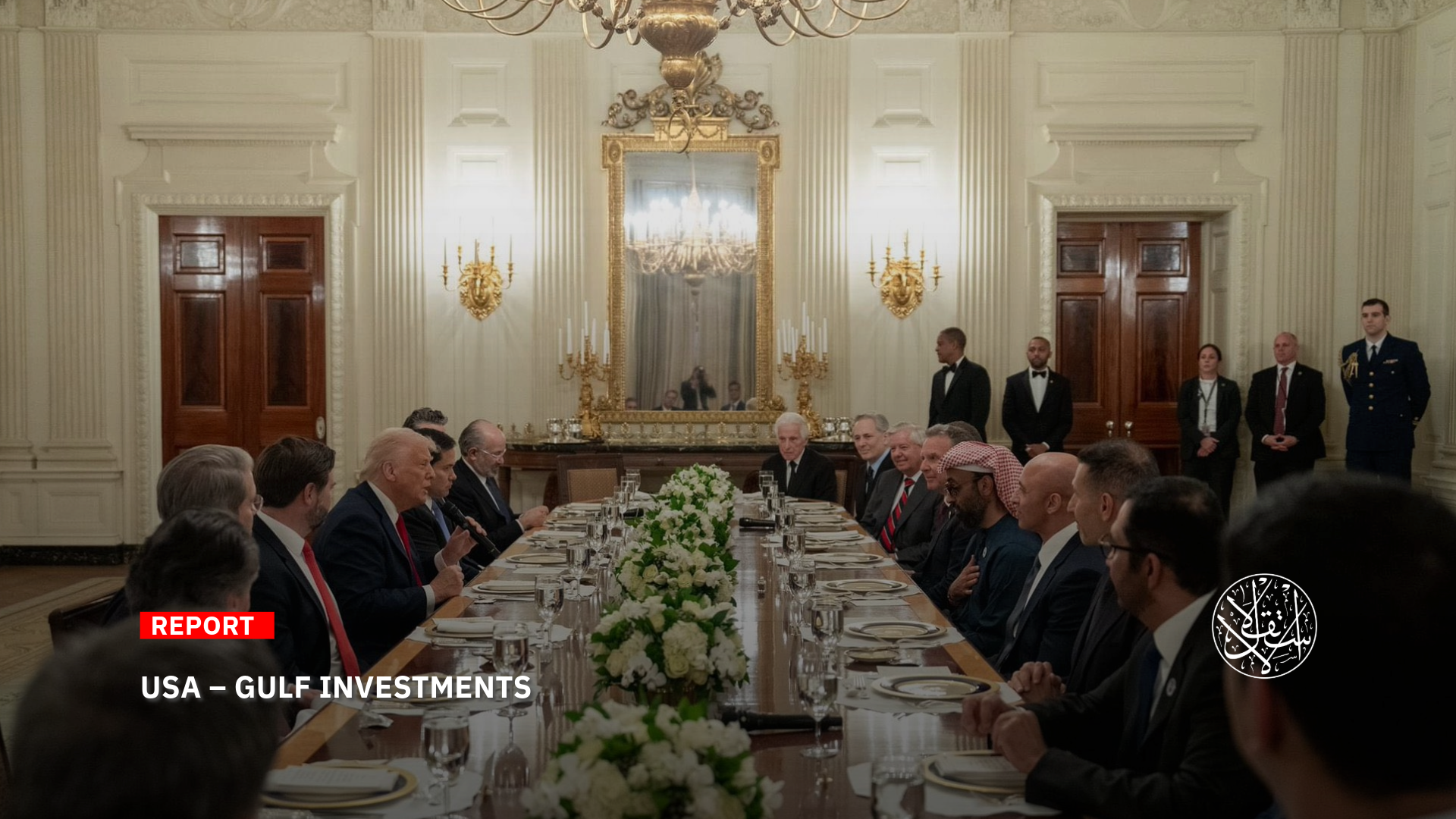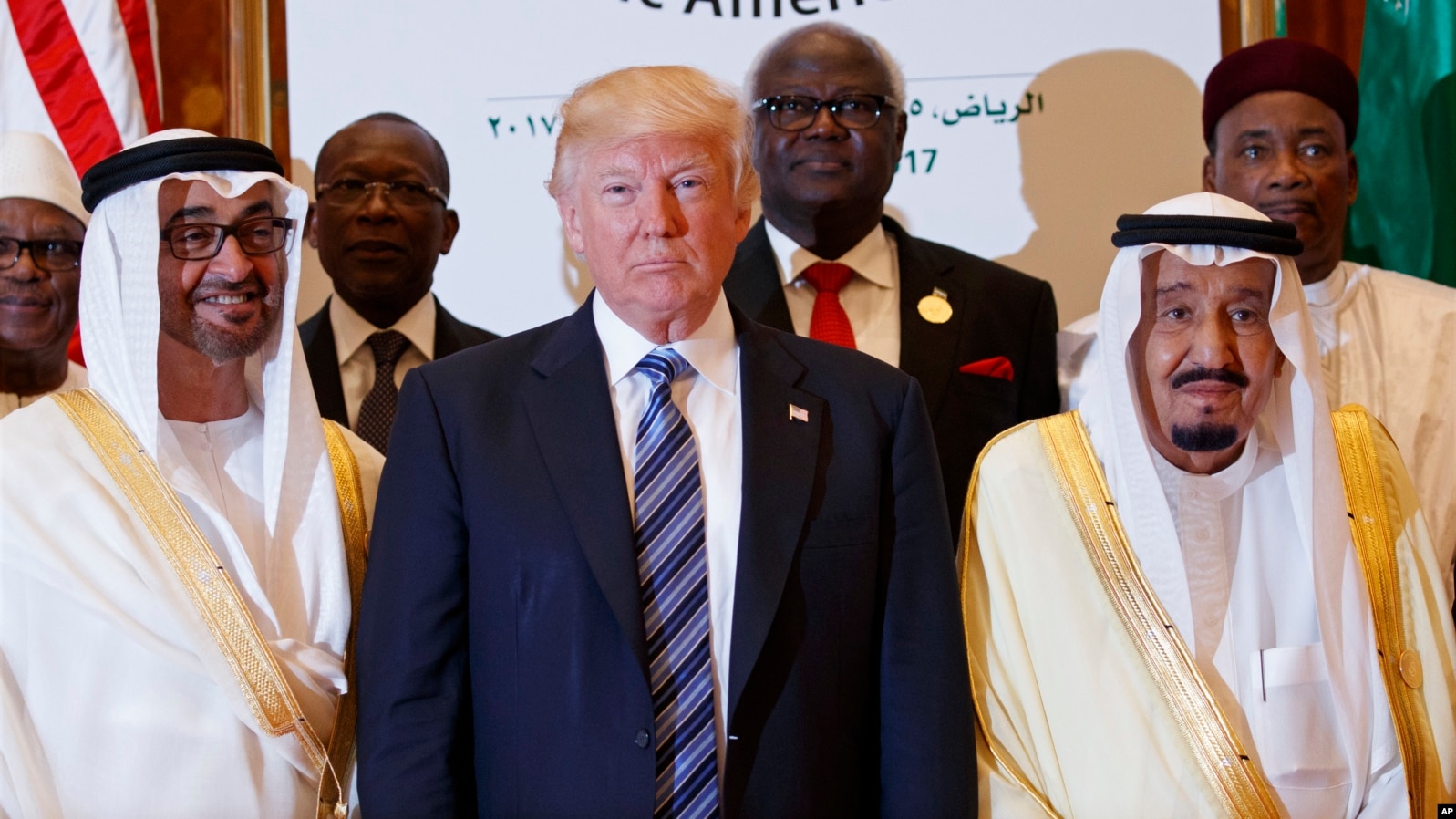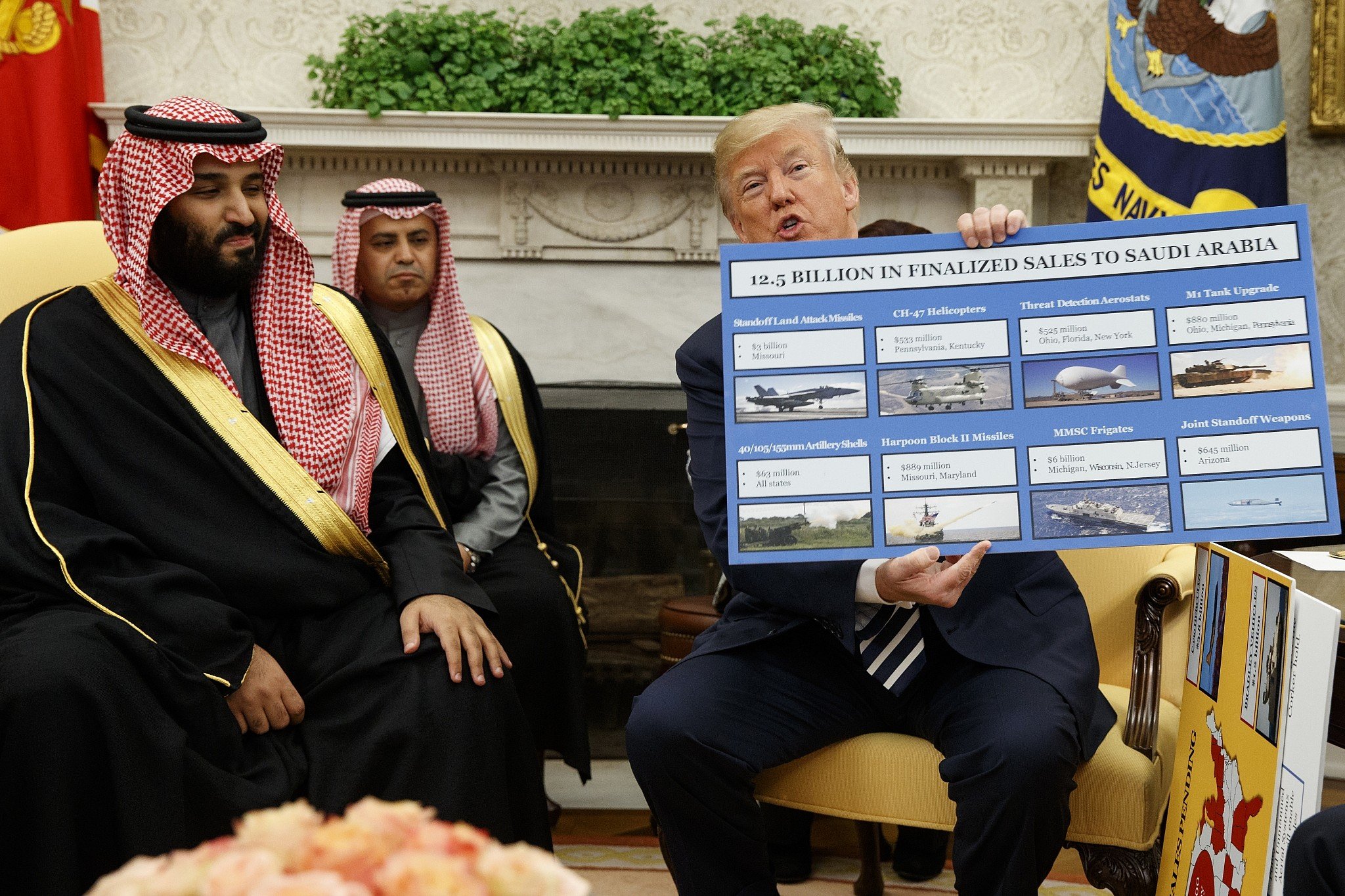How Saudi Arabia and the UAE Compete in Loyalty to Trump

“In January, Trump asked Saudi Arabia to spend upwards of $1 trillion in the U.S. economy over four years.”
Recent reports have revealed that Saudi Arabia has agreed to provide nearly $1 trillion in support to former US President Donald Trump, while the UAE has pledged $1.4 trillion to support his policies.
These investments highlight the significant spending both countries are undertaking to advance their political interests and enhance their influence regionally and internationally.
Whether Abu Dhabi seeks to deepen its economic relations with Washington or enhance its influence regionally and internationally, this significant investment ultimately reflects the strategic ambitions the UAE seeks to achieve amid intense competition with Saudi Arabia and other countries in the region.
During his last presidency, Trump fostered personal relations with Gulf leaders, and offered strong defense support for their countries, while refraining from criticizing their human rights records.
UAE Investments
Relations between the U.S. and the UAE have witnessed significant developments recently, with an increase in bilateral meetings that reflect the growing strategic partnership between the two countries.
In a major and unprecedented move, the White House recently announced that the UAE has committed to a 10-year, $1.4 trillion investment framework in the U.S.
This announcement came after a meeting between US President Donald Trump on March 18 with UAE National Security Advisor Tahnoon bin Zayed at the White House, and a dinner hosted by US Vice President J.D. Vance and several members of the Cabinet with an Emirati delegation that included heads of sovereign wealth funds and major Emirati companies.
The White House confirmed that this agreement will significantly boost Emirati investments in the US economy, with a particular focus on vital sectors such as defense, technology, investment, and energy.
However, it did not specify how the Emirati investments will reach this enormous value, despite the announcement of some deals that have been revealed as part of this framework.
Emirati and American companies signed partnership agreements to develop artificial intelligence technologies, a move aimed at deepening cooperation in this futuristic sector, which Abu Dhabi uses to spy on dissidents and those who oppose its policies.
In a related development, ADQ Holding, the UAE's investment fund, and Energy Capital Partners, a US-based power generation and renewable energy company, announced a partnership to invest a total of more than $25 billion in projects capable of generating 25 gigawatts of power to meet the growing energy demand for data centers and cloud computing companies.
XRG, the investment arm of the Abu Dhabi National Oil Company (ADNOC), also announced its commitment to supporting natural gas production and exports in the United States by investing in the NextDecade LNG export facility in Texas.
The two companies have additional plans for significant investments in US assets in the gas, chemicals, energy infrastructure, and low-carbon solutions sectors.
In this context, Emirates Global Aluminium's investment in the first new aluminum smelter in the U.S. in 35 years is a testament to the UAE's determination to strengthen its economic partnership with Washington.

UAE-US Cooperation
“The unprecedented amount of capital the UAE is spending on American AI and technology gives them a huge sway over the Trump administration,” US and Arab officials said.
The UAE's move toward deepening its economic partnership with the U.S. comes at a time when the region is witnessing major transformations, most notably increasing normalization with the Israeli occupation and attempts to redraw the political map of the Middle East.
Furthermore, strengthening economic cooperation between Abu Dhabi and Washington, especially in areas that serve the military and technology industries, cannot be separated from the UAE's indirect support for expanding Israeli hegemony in the region.
The UAE and the U.S. are moving toward strengthening their cooperation in the areas of cybersecurity, counterterrorism, and protecting vital supply chains, areas that have become increasingly important with the rise of non-traditional security threats.
Reports indicate that the U.S. has approved billions of dollars in arms deals for Abu Dhabi, including F-35 fighter jets and advanced defense systems, as part of agreements aimed at bolstering the UAE's defense capabilities and strengthening military cooperation between the two countries.
The UAE also hosts more than 3,500 US troops at its military bases, stationed under security agreements that allow the US to strengthen its presence in the region.
Non-oil trade between the UAE and the US reached $39.5 billion in 2023, compared to $32.8 billion in the previous year, according to official data.
This growth represents a continuation of the upward trend in trade relations between the two countries, as the UAE has been the largest Arab trading partner of the U.S. for more than a decade.
US exports to the UAE include aircraft and spare parts, medical equipment, and vehicles, while US imports from the UAE focus on aluminum and petroleum products.
According to the American Chamber of Commerce, the UAE ranks first among Arab countries in foreign direct investment in the U.S., with a value exceeding $30 billion.

Economic Loyalty
This US-UAE agreement comes after President Trump asked Saudi Arabia to increase its investments in the U.S. to $1 trillion over the next four years, during his speech at the World Economic Forum in Davos, Switzerland, last January.
This followed Saudi Arabia's announcement of its desire to expand its investments and trade relations with the U.S. by $600 billion over the next four years.
Trump's latest request reflects the close ties between Riyadh and Washington, which have placed the Kingdom in a sensitive position requiring major economic decisions in favor of the U.S.
However, the UAE, which has previously announced its significant investments in the U.S., is attempting to take leadership from Saudi Arabia in this regard.
This competition between Riyadh and Abu Dhabi over economic and financial loyalty to Washington could be part of a larger strategy to emphasize the importance of the Gulf Arab states in the global political equation.
This massive Emirati investment in the U.S. may not be merely an economic move but could be seen as an attempt to buy influence or a means to alleviate the political pressure facing Abu Dhabi, particularly from human rights organizations.
At a time when some Western countries are seeking to reduce their ties with repressive governments, the UAE is seeking to demonstrate that it is a key partner in the global economy, thus presenting itself as a major supporter of technological advancement and clean energy.
Observers believe that the UAE may be seeking to launder its international reputation with money, in an attempt to cover up some of the controversial policies and decisions it has undertaken in the past.

Saudi-US Deal
In a move that reflects the return of warmth to US-Saudi relations, the Pentagon announced a few days ago that the State Department had approved a potential sale of precision-guided weapon systems to Saudi Arabia worth up to $100 million.
The deal includes 2,000 laser-guided missiles designed to attack air and ground targets with high precision. They are typically used to shoot down drones or target vehicles and moving ground targets.
This deal is part of the Trump administration's efforts to strengthen cooperation with Riyadh, following a period of coolness during the previous Democratic administration led by Joe Biden.
With escalating regional challenges, particularly threats from Iran and its allies, such as the Houthis in Yemen, this move emerges as part of a broader strategy to support stability in the Middle East and counter Iranian influence.
This move follows a similar approval in October 2024 for the sale of TOW missiles to Saudi Arabia for $440 million, reflecting the accelerating pace of military cooperation between the two countries.
The deal coincides with an intensified US air campaign against the Houthis in Yemen, the largest since Trump returned to the White House last January. It aims to deter the threats posed by the Iran-backed group to maritime navigation and regional security.
Observers believe that the Saudi regime, facing an internal legitimacy crisis due to its long history of repression and human rights violations, has found no way to overcome this record except through continued financial support for American arms.
They point out that these deals are not used to enhance Saudi Arabia's real defense capabilities, but rather to ensure the continued presence of American support, even if this comes at the expense of the blood of Yemenis or Palestinians, or at the expense of further American silence regarding human rights violations within Saudi Arabia.
It is worth noting that the Gulf Arab states have for decades adhered to agreements with the U.S. stipulating that they purchase American products worth 45% of their oil revenues, or invest these funds in the U.S., in addition to linking the value and stability of the US dollar to Gulf oil.

Political analyst Kinan Ezzedine explained to Al-Estiklal that “the Trump administration is working to strengthen the strategic partnership with Saudi Arabia and the UAE as part of US national security.”
“The UAE and Saudi Arabia are trying to buy protection through their massive investments in the U.S., which puts the rest of the Arab Gulf states in a critical strategic position,” he added.
Mr. Ezzedine concluded that “this American blackmail comes in the context of broader geopolitical changes, as Washington seeks to restructure its regional alliances, turning military history into a negotiating asset.”












